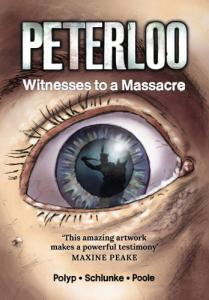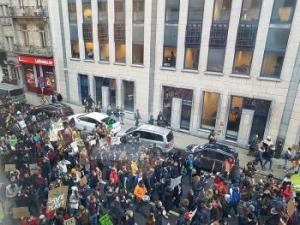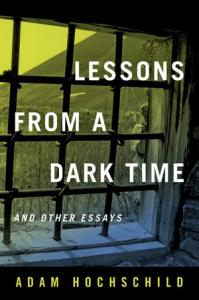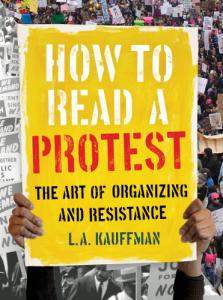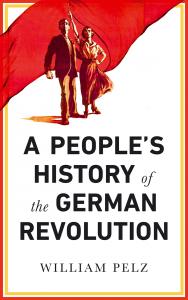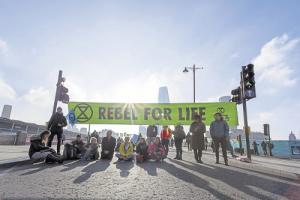If you haven’t been living under a rock for the last 10 months, there’s a strong chance you’re aware that this year marks the 200th anniversary of the Peterloo massacre.
On 16 August 1819, an estimated 40–50,000 people assembled peacefully on St Peter’s Field in Manchester to hear the well-known reformer Henry Hunt speak on ‘the most LEGAL and EFFECTUAL means of obtaining a reform in the Common House of Parliament’.
The crowd was attacked, first by the Manchester and…
Carlyle, Gabriel
Carlyle, Gabriel
Gabriel Carlyle
The climate movement needs an acceleration of forward steps and more of the urgency of commitment that XR and the climate strikers have been demonstrating.
But urgency and commitment by themselves aren’t enough.
Daniel Hunter tells a powerful story in…
It would be difficult to exaggerate the scale of our current ecological crisis. But not impossible.
In XR’s April 2019 video, ‘Act as if the Truth is Real’, actor and XR spokesperson Sam Knights says: ‘we're not alarmist and we don't exaggerate’. [1] Yet, from the beginning, some of XR’s most prominent spokespeople have done just that.
In his 61-page booklet, Common Sense for the 21st Century: Only Nonviolent Rebellion Can Now Stop Climate Breakdown and Social Collapse…
If one core part of XR’s approach has been to try and scare the bejesus out of people (see ‘XR: The dangers of apocalyptic organising’), a second has been its claim that it has a plan – indeed, one grounded in ‘social scientific research’ – that could save the day.
This has two parts: (a) a set of three demands; and (b) a…
XR is fond of citing political scientist Erica Chenoweth’s ‘3.5 percent rule’ (see eg. 'XR: The Plan') – an empirical observation that it ‘only’ takes ‘3.5% of a population engaged in sustained nonviolent resistance to topple dictatorships’ [1], based on the analysis of a dataset of over 100 major nonviolent campaigns that took place between 1900 and 2006. [2]
It should be noted that:
(A) the dataset only considered ‘…
Over the past nine months, Extinction Rebellion (XR) has played a significant role in helping to push climate change way up the UK’s political agenda. For its boldness of vision, its commitment to nonviolence, its desire (and ability) to get large numbers of new people involved, its chutzpah and creativity, and for the sheer hard work that many of its activists have put into the cause, it…
Burning fossil fuels (oil, coal and gas) is the main driver of global warming. Just 100 fossil fuel producers – including Exxon, Shell, BP and Total – account for 71 percent of all global industrial greenhouse gas emissions since…
Many schools and sixth-form colleges across the UK are unwittingly helping to fund climate change through their contributions to Local Government Pension Schemes. These Pension Schemes have £16 billion pounds of people’s pension monies invested in giant oil, coal and gas companies like Exxon and BP. By taking action in their schools, students, parents, teachers and staff can help to break the hold these companies currently have on…
The United States’ April 1917 entry into the First World War sparked a massive wave of internal repression that was to last until 1920.
US radical newspapers and magazines were targeted, with postmasters ordered to be on the lookout for anything ‘calculated to … embarrass or hamper the Government in conducting the war’.
The former secretary of war, Elihu Root (who would go on to co-found the prestigious Council on Foreign Relations) told a gathering at New York’s Union…
On 15 February 2003, during the the famous million-plus-strong march against the US-led invasion of Iraq, I was handed a newsheet by an anarchist. Its gist, none too tactfully expressed, was that such mass demonstrations were pointless and that we were all fools for taking part. Whether or not he was right is one of the many questions about protest explored (in a US context) by LA Kauffman in this short but insightful book.
The mobilising director of some of the largest…
For an event with such a pivotal role in the history of the 20th century (see PN 2622), the German Revolution of 1918-19 has a very low profile. Indeed, when he asked an upper-level class on Modern European History ‘What was the German Revolution?’ William Pelz received a number of incorrect answers (Hitler’s 1933 burning of the Reichstag, the 1989 fall of the Berlin wall, and ‘something to do with Luther and the Reformation’). But none of his students connected the words with ‘a…
This essay was written on 1 November, before the bridges actions on 17 November that we report on p5.
If Extinction Rebellion plans to gradually build capacity for its big demands by winning smaller-scale victories then why has it launched itself with (apparently) no indication as to what these smaller-scale wins are going to be?
Lots of people seem to be very excited about Extinction Rebellion (XR)’s ‘declaration of rebellion’…
Several people responded to my original piece, in which I raised doubts about Extinction Rebellion (XR), suggesting that I was proposing ‘inaction’ as the alternative to joining XR.…
Waging Nonviolence (WNV) has been publishing must-read reporting and analysis on nonviolent action around the world since 2009.
It started out as a blog, the brainchild of three young people: Eric Stoner, Bryan Farrell and Nathan Schneider, who all shared an interest in nonviolence and civil resistance, though each approached the topic from a slightly…
Lots of people seem to be very excited about Extinction Rebellion (XR)’s ‘declaration of rebellion’ and its plans to ‘bring…


